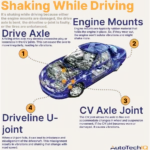Car insurance can be confusing. It’s essential but often misunderstood.
Understanding car insurance tips can save you money and stress. This blog will share practical car insurance tips to help you. Many drivers feel overwhelmed by car insurance options. Policies can be complex and full of legal terms. Knowing what to look for can simplify the process.
With the right car insurance tips, you can choose a policy that fits your needs. This guide will provide clear, actionable advice. Whether you’re a new driver or experienced, these tips will help. Get ready to learn how to make informed decisions and protect yourself on the road. Stay tuned for valuable insights that can make a real difference in your car insurance experience.
Choosing The Right Policy
Choosing the right car insurance policy can feel overwhelming. With so many options, it’s important to find one that fits your needs. That’s why following smart car insurance tips is essential.
Assessing Your Needs
Start by assessing your needs. Consider how often you drive. Think about the car’s value and your budget. Evaluate the level of coverage you need. Do you want full coverage or just liability? Understanding your needs will guide your choice.
Comparing Providers
Next, compare providers. Look at different car insurance companies. Check their reputation and customer reviews. Compare the prices and coverage options. See if they offer any discounts. Make sure they have good customer service. This will help you find the best provider for your needs.
Understanding Coverage Options
Car insurance tip can be confusing, but understanding coverage options is key to making smart decisions. Each coverage type offers protection in different situations, and knowing the details can save you money and stress. Let’s break down the essentials so you can choose the right coverage for your needs.
Liability Coverage
Liability coverage is often the most talked-about aspect of car insurance. It covers damages you cause to others in an accident. This includes injuries and property damage.
Every state has its own minimum requirements for liability coverage. But, have you ever thought about what happens if those limits aren’t enough? You could be left paying out of pocket.
Consider opting for higher limits if you drive frequently or have significant assets. It’s often more affordable than you think and provides peace of mind.
Collision And Comprehensive
Collision and comprehensive coverages protect your car in different ways. Collision covers damage to your car from an accident, regardless of who’s at fault. Comprehensive, on the other hand, covers non-collision incidents like theft, fire, or natural disasters.
Picture this: your car gets damaged by a fallen tree during a storm. Without comprehensive coverage, you’d be responsible for repairs. That’s a scenario no one wants to face unprepared.
Think about your car’s value and how much you’re willing to pay out of pocket. If your car is older, you might skip these coverages. But if it’s newer or financed, they might be worth it.
Balancing coverage options can seem overwhelming. But when you tailor your insurance to fit your life, you protect your future. What coverage options make sense for you?
Ways To Lower Premiums
Car insurance can be expensive. But there are proven car insurance tips that help lower your premiums. Here are some tips to help you save money. These tips are simple and easy to follow.
Bundling Policies
Consider bundling your car insurance with other policies. Many insurance companies offer discounts. Combine your car and home insurance. Or, add a life insurance policy. Bundling can save you money on each policy. It’s a simple way to lower your premiums.
Increasing Deductibles
Think about increasing your deductible. A higher deductible means lower monthly premiums. You pay more out-of-pocket if you have a claim. But, you save money each month. Make sure you can afford the higher deductible. This tip helps many people lower their car insurance costs.

Credit: www.tdi.texas.gov
Exploring Discounts
Exploring discounts on Car Insurance Tips can save you a lot of money. Many insurance companies offer various discounts to attract customers. Understanding these discounts can help you lower your premium. Let’s dive into some common car insurance discounts.
Safe Driver Discounts
Insurance companies reward drivers with clean driving records. If you have no accidents or traffic violations, you could qualify. Safe driver discounts encourage careful driving. They also help reduce your insurance costs.
Low Mileage Discounts
Driving fewer miles each year can earn you a discount. Insurance companies see low mileage as less risk. If you drive less, you might pay less. It’s a win-win situation. Check your annual mileage and ask your insurer about this discount.
Utilizing Telematics
Telematics is changing the way we think about car insurance. By using technology to track your driving habits, telematics offers a more personalized insurance plan. This means you could potentially lower your insurance costs by driving safely. But how does it work, and is it right for you? Let’s explore the benefits and concerns of utilizing telematics.
Benefits Of Usage-based Insurance
Usage-based insurance rewards you for safe driving. If you drive carefully, you could see a reduction in your premiums. Imagine the satisfaction of opening your insurance bill to find it’s less than you expected.
Telematics provides real-time feedback. You can adjust your driving habits as you receive data on speed, braking, and more. It’s like having a personal driving coach in your pocket.
Some insurers offer discounts just for installing a telematics device. It’s an easy way to start saving right away. Wouldn’t you want to take advantage of that?
Privacy Concerns
While telematics can save you money, it does raise privacy concerns. Your driving data is constantly collected and analyzed. Are you comfortable sharing this information?
Ensure you understand how your data is used. Read the fine print in your insurance policy. This can help you make an informed decision about whether telematics is right for you.
Consider who has access to your data. It’s crucial to know if your driving information is shared with third parties. Your privacy should always be a priority.
Utilizing telematics can be a smart move for many drivers. Have you considered how it might affect your insurance costs and privacy?
:max_bytes(150000):strip_icc()/car-insurance-costs.aspFinal-67e96373fddc49dd960fbc316737ebcd.jpg)
Credit: www.investopedia.com
Reviewing Policy Annually
Reviewing your car insurance policy annually is crucial. It helps keep your coverage aligned with your needs. Life changes and market shifts can affect your policy. Regular reviews ensure you are not overpaying or underinsured. This practice can save you money and provide peace of mind.
Life Changes Impact
Life changes can affect car insurance needs. A new job might alter your daily commute. Moving to a new city can change your risk profile. Marriage or having children may require more coverage. Each change can impact your insurance needs. Reviewing your policy annually keeps it relevant. Adjust your coverage to match your life changes.
Market Changes Impact
Insurance markets shift over time. New companies enter the market offering competitive rates. Existing companies revise their pricing structures. Annual reviews help you spot potential savings. New discounts might be available due to market shifts. Compare your current policy with other offers. Keep your policy competitive by staying informed.
Dealing With Claims
Understanding your car insurance policy helps in handling claims efficiently. Always document accidents with photos and notes. Contact your insurer quickly to report incidents, ensuring a smoother claims process.
Dealing with claims can be a daunting aspect of car insurance. Yet, understanding the process is crucial for a smooth resolution. Whether it’s a minor fender-bender or a major accident, knowing how to navigate the claims process can save you time, stress, and money. Let’s dive into practical tips for handling claims effectively, focusing on filing a claim and negotiating settlements.
Filing A Claim
When an accident occurs, the first step is to file a claim with your insurance company. Start by gathering all necessary information such as the date, location, and details of the incident. Take photos of the damage and collect contact information from any witnesses. Once you’ve gathered this information, contact your insurer promptly. Many companies have a dedicated claims line available 24/7. Quick reporting can expedite the process and ensure your claim is handled efficiently. Have you ever delayed filing a claim and faced complications? Acting swiftly prevents confusion and ensures your story is fresh in your mind.
Negotiating Settlements
After filing a claim, the auto insurance plans company will assess the damage and propose a settlement. It’s crucial to review the offer carefully. Ensure it covers all repair costs and any other expenses incurred due to the accident. Don’t hesitate to negotiate if the offer seems insufficient. Provide additional evidence, such as repair estimates from multiple shops. This can strengthen your position and lead to a better settlement. Consider this: have you ever accepted an initial offer without questioning it? Asking questions and negotiating can significantly impact your financial outcome. Remember, dealing with claims is an opportunity to protect your interests. Stay informed, act promptly, and don’t shy away from negotiating for what you deserve.

Credit: www.cigflorida.com
Understanding Legal Requirements
Knowing legal requirements helps you avoid fines and keeps your car insurance valid. Stay updated on laws to protect yourself and others.
Understanding the legal requirements for car insurance tip is crucial for every driver. It’s not just about being compliant—it’s about protecting yourself and others on the road. Knowing what the law demands can save you from hefty fines and potential legal battles.
State Minimums
Each state in the U.S. has its own set of minimum insurance requirements. These are the least amount of coverage you must carry to drive legally. Imagine thinking you’re fully covered, only to find out after an accident that you’re underinsured because you didn’t meet your state’s minimums. Check your state’s Department of Motor Vehicles (DMV) website for specific details. They often provide easy-to-understand charts or tables outlining required coverage. Remember, meeting only the minimum might not be enough to fully protect you in a serious accident.
Mandatory Insurance Laws
Most states require liability insurance to cover damages or injuries you cause in an accident. Without it, you risk paying costly medical or repair bills yourself. Some states also mandate extra coverages like uninsured motorist or personal injury protection for added security. Driving without insurance can lead to fines, license suspension, or even jail. Knowing these legal rules helps protect your finances and keeps you safe on the road. Are you fully covered?
Frequently Asked Questions
What Is The 10 Percent Rule For Car Insurance?
The 10 percent rule for car insurance suggests raising your deductible by 10% to lower your premium. This strategy can save money if you’re willing to pay more out-of-pocket during a claim. Always assess your financial situation before adjusting your deductible to ensure it’s manageable.
How To Reduce Car Insurance Prices?
To reduce car insurance prices, compare quotes from multiple providers. Maintain a clean driving record. Increase your deductibles. Bundle insurance policies. Utilize discounts for safety features and low mileage.
What Does $100 K /$ 300k /$ 100k Mean?
$100k, $300k, and $100k represent monetary values of $100,000, $300,000, and $100,000, respectively. The “k” symbolizes thousands.
How Can I Get A Better Deal On Car Insurance?
Compare quotes from multiple insurers online. Increase your deductible. Bundle policies. Maintain a clean driving record. Ask about discounts.
Conclusion
Choosing the right car insurance tip matters. It protects you and your vehicle. Always compare different plans. Consider your specific needs and budget. Reading the fine print helps avoid surprises. Discounts can reduce costs significantly. Ask your insurer about available options.
Regularly review your policy. Update it as your life changes. This ensures you have the best coverage. Safe driving habits also save money over time. Remember, informed decisions lead to better coverage. Protecting your investment with the right insurance gives peace of mind.
Stay safe and insured on the road.













